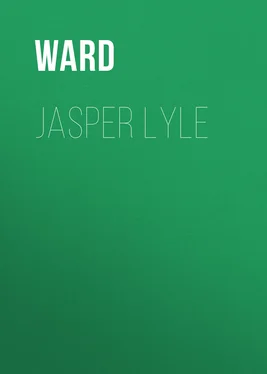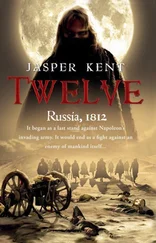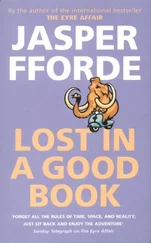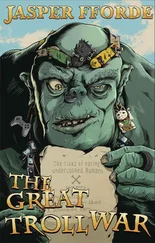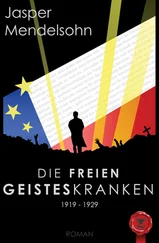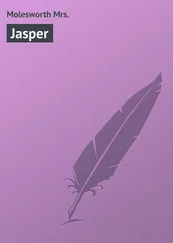Ward - Jasper Lyle
Здесь есть возможность читать онлайн «Ward - Jasper Lyle» — ознакомительный отрывок электронной книги совершенно бесплатно, а после прочтения отрывка купить полную версию. В некоторых случаях можно слушать аудио, скачать через торрент в формате fb2 и присутствует краткое содержание. Жанр: foreign_prose, foreign_antique, на английском языке. Описание произведения, (предисловие) а так же отзывы посетителей доступны на портале библиотеки ЛибКат.
- Название:Jasper Lyle
- Автор:
- Жанр:
- Год:неизвестен
- ISBN:нет данных
- Рейтинг книги:5 / 5. Голосов: 1
-
Избранное:Добавить в избранное
- Отзывы:
-
Ваша оценка:
- 100
- 1
- 2
- 3
- 4
- 5
Jasper Lyle: краткое содержание, описание и аннотация
Предлагаем к чтению аннотацию, описание, краткое содержание или предисловие (зависит от того, что написал сам автор книги «Jasper Lyle»). Если вы не нашли необходимую информацию о книге — напишите в комментариях, мы постараемся отыскать её.
Jasper Lyle — читать онлайн ознакомительный отрывок
Ниже представлен текст книги, разбитый по страницам. Система сохранения места последней прочитанной страницы, позволяет с удобством читать онлайн бесплатно книгу «Jasper Lyle», без необходимости каждый раз заново искать на чём Вы остановились. Поставьте закладку, и сможете в любой момент перейти на страницу, на которой закончили чтение.
Интервал:
Закладка:
Beyond, the scene was charmingly pastoral; a clear stream, a branch of the river they had lately forded, wound through the vale, and from the banks opposite the settlement was a gently-sloping hill, thickly wooded in some parts. On the open spaces cattle were browsing, unmindful of the call of the Hottentot herds, too indolent to climb the steep and drive them down. The call was unheeded till it was accompanied by the shrill whistle of a little Kafir boy, that whistle which acts like magic on the cattle of South Africa; with one accord the creatures paused, lifted up their heads to listen, and then the largest ox of the herd turning to descend the hill, the rest wended their way after him to meet these impish guards, while other herdsmen went to collect the great flocks of sheep and goats, whose approach along the course of the river was continuously audible enough to charm the most Arcadian taste and ear. The lowing of the cattle, the bleating of the smaller but more numerous “creatures of the fold,” the Kafir whistle, and the song and laughter of the Hottentot girls, floated together in a sort of wild harmony along the vale, and met the travellers in their descent; but not the least agreeable part of the picture to the latter, was the sight of their waggons drawn up upon a miniature prairie, or flat on the margin of the stream, and the smoke, curling upwards from the bush, announced the preparation for cookery, to which they were disposed to do ample justice. Their tents were pitched, they were evidently expected, and the Hottentot courier, who had preceded them by a day, had done his bidding and “made ready.”
The hospitable Dutchman, the owner of the farm, was on the look-out for them, for he stood leaning over his wicker gate and watching their advance.
They cantered up, and replied to his “Good morrow,”—Frankfort cordially, Ormsby with cold civility; but the Dutchman invited them within, and Frankfort, feeling himself indebted for the permission to outspan (unyoke) on the farm-land, accepted the proffered attention, much to Ormsby’s disgust, for he was hungry, tired, and thoroughly uncomfortable from the effects of the drenching he had got.
So was Major Frankfort; but these two men, though friends and companions, were very different in habits and opinions. Indeed, Ormsby, had it been practicable, would gladly have faced about and given up that expedition, so utterly annoyed was he with many désagrémens en route ; indeed, he had been first induced to accompany Frankfort, because his brother-officers had offended his manly pride by doubting his powers of endurance on a trek (journey) through the depopulated wilderness.
“You lazy dog, Ormsby,” his colonel had observed to him one morning, “how can you talk of going up the country with Frankfort? he will never make a sportsman of you,—you are always late for parade.”
“I am never last , sir,” replied the youngster to his commanding officer, who happened that very day to have kept the parade waiting; a thing commanding officers constantly do themselves, though they punish their subordinates for the error.
“Humph!—You know nothing of sporting—you talk of the moors; why, Frankfort has shot his five-and-twenty lions; besides, you would be breakfasting at his dinner-hour, and grumbling that you have no cream for your coffee as muddy as the water of the Fish River. Tell us, now, what time you got up this morning.”
“I confess, that is rather a poser, sir; but I will ask my servant, if you particularly desire to know,” answered Ormsby, with a demure look, which set some of the subs laughing.
“Can you tell when the sun rose?” asked Colonel J.
“No, sir,” replied the saucy Ormsby, gravely; “he was up before I was.”
It was the manner, not the matter, that made every one laugh, and Ormsby, running his hand through his shining, but carelessly-arranged hair, called to his servant to bring him his cigar-case, and the last new novel he had received from England, in Hookham’s box; then, stretching himself at full length across a window-sill of the mess-room, he took up a paper, declaring it was too hot for billiards; next he ordered some pale ale, with which he solaced himself while he waited for his novel and cigar, and having obtained these, began to long for luncheon.
In great contrast to him was his friend Major Frankfort. Though possessed of attractions which would render many a man vain, Frankfort was sadly insensible to the charms of a society in which he would have been flattered and caressed. The principal features in his character were generosity, and its sister attribute, bravery; but there was withal a certain reserve in his nature, which prevented him from being appreciated, except by friends, and these were not numerous; for he was neither a person to seek, or be sought—he was one who could not be gratified by the commonplaces of every-day life. His love of adventure had its impulses, not in the excitement of the gay world, but in the beauties, harmonies, and sublimities of nature.
The winter season had passed away without realising the expectation formed by the colonists of a war with the savage tribes on their border, and the months succeeding the rains were looked forward to by sportsmen as a season of relief and enjoyments, after the désagrémens of a life “under arms,” without the excitement of “an enemy in sight.”
How often it happens, especially in the naval and military professions, that two men of totally opposite natures will become the most intimate friends of the community to which they belong. No two characters could be more strongly contrasted than those of Edward Frankfort and Charles Ormsby. Characters may differ where natures may have attributes in common.
Frankfort was generous and brave, so was Ormsby; but the latter was often more generous than just, for he had never been taught the value of money or opinion, nor how to discriminate between the faults arising from folly, or those originating in misfortune. Equally brave with Frankfort, he was hasty in his judgments and impetuous in his decisions, forgetting that fool-hardiness is no proof of courage, and that valour is not thought the less of for being coupled with discretion. But, unlike Frankfort, whose candour was never obtrusive, Ormsby’s openness of manner often degenerated into egotism.
Frankfort was careless of appearances as far as mere fashion went; nevertheless, his attire was always suited to the occasion. Ormsby, while he affected to despise those outward adornings which render men effeminate, and consequently despicable in the eyes of those they most seek to please, displayed a certain affectation in the tie of the loose cravat which showed to advantage the beauty of his throat; the straw hat he wore in the morning lounge was coarse, but of becoming shape, and his shooting-coat, or loose jacket, hung on his shoulders as they would have hung on no other’s.
Pretending to despise the uniform of the soldier, he “sported” a costume as little like an officer’s and as much like a settler’s as possible; but to see him enter a hall-room in all the pride of scarlet and gold, it was clear that he thought himself the finest there. So Colonel J said; but Ormsby was perpetually vexing Colonel J, the most selfish of men, the most exacting of commanding officers.
This dash of conceit, however, was rather becoming to one so handsome, so agreeable, and so open-hearted; and Major Frankfort found himself making allowances for the young sub’s faults, and at last taking sufficient interest in him to endeavour to correct them. Early indulgences made this a difficult matter; but Frankfort saw, that though the surface was overrun with weeds and rubbish, there was something below worth getting at. Little rays of light gleamed up at times, and showed that there was good ore in the mine.
Читать дальшеИнтервал:
Закладка:
Похожие книги на «Jasper Lyle»
Представляем Вашему вниманию похожие книги на «Jasper Lyle» списком для выбора. Мы отобрали схожую по названию и смыслу литературу в надежде предоставить читателям больше вариантов отыскать новые, интересные, ещё непрочитанные произведения.
Обсуждение, отзывы о книге «Jasper Lyle» и просто собственные мнения читателей. Оставьте ваши комментарии, напишите, что Вы думаете о произведении, его смысле или главных героях. Укажите что конкретно понравилось, а что нет, и почему Вы так считаете.
